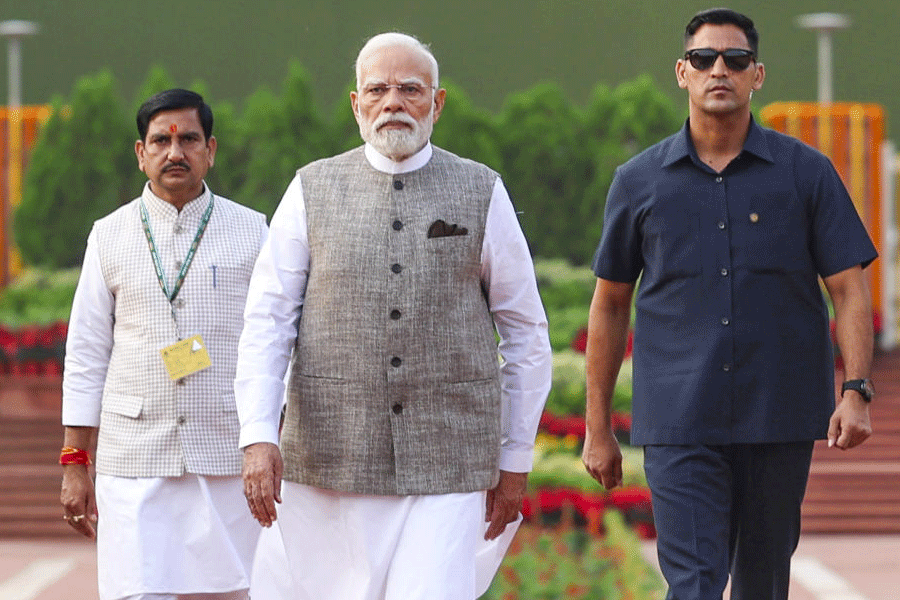Narendra Modi on Thursday had praises for both Mahatma Gandhi, on his 156th birth anniversary and RSS, the parental organisation of Modi’s party, on its centenary.
“Gandhi Jayanti is about paying homage to the extraordinary life of beloved Bapu, whose ideals transformed the course of human history. He demonstrated how courage and simplicity could become instruments of great change,” Modi wrote on X.
“He believed in the power of service and compassion as essential means of empowering people. We will keep following his path in our quest to build a viksit Bharat.”
The praise for the Father of the Nation came a day after Modi sang paeans of the RSS, the political offspring of which is the BJP, Modi’s party.
“We have seen how even after Independence, there have been attempts to crush the Sangh. His Holiness Guruji (MS Golwalkar) was implicated in a false case (of involvement in Mahatma Gandhi’s assassination. He was even sent to jail,” Modi had said.
Ties between Mahatma Gandhi and the Hindu right-wing, represented by the RSS, Modi and his party have always been tenuous.
Critics of the RSS-BJP combine have come down hard on historical records showing the Sangh’s reluctance to participate in the freedom struggle, as well as the BJP’s attempts to alienate India’s first Prime Minister Jawahar Lal Nehru from his other colleagues, especially Sardar Patel and Subhas Chandra Bose.
Barely 48-hours after Gandhi’s assassination, Patel as the Union home minister of a newly independent India had issued a government notification banning the RSS.
“…the government of India declared their determination to root out the forces of hate and violence that are at work in our country and imperil the freedom of the nation and darken her fair name. In pursuance of this policy, the government of India has decided to declare unlawful the Rashtriya Swayamsevak Sangh in the chief commissioner’s provinces. Similar action is also being taken in the Governor’s provinces,” reads the communique from February 2, 1948.
The chief commissioner’s provinces referred to those areas, since British India days, which were administered by a chief commissioner like Delhi, Ajmer, Coorg and Andaman and Nicobar Islands among a few others.
Nathuram Godse, the man who fired three times at point-blank range at the Mahatma’s chest on January 30, 1948 was a right-wing activist.
The only temple dedicated to Godse is in Madhya Pradesh’s Gwalior, also the birthplace of the late Atal Bihari Vajpayee, a right-wing ideologue and India’s former prime minister.
Former BJP MP from Bhopal Pragya Thakur has more than once called Godse “patriotic,” once on the floor of the Lok Sabha, for which the BJP reprimanded her.










